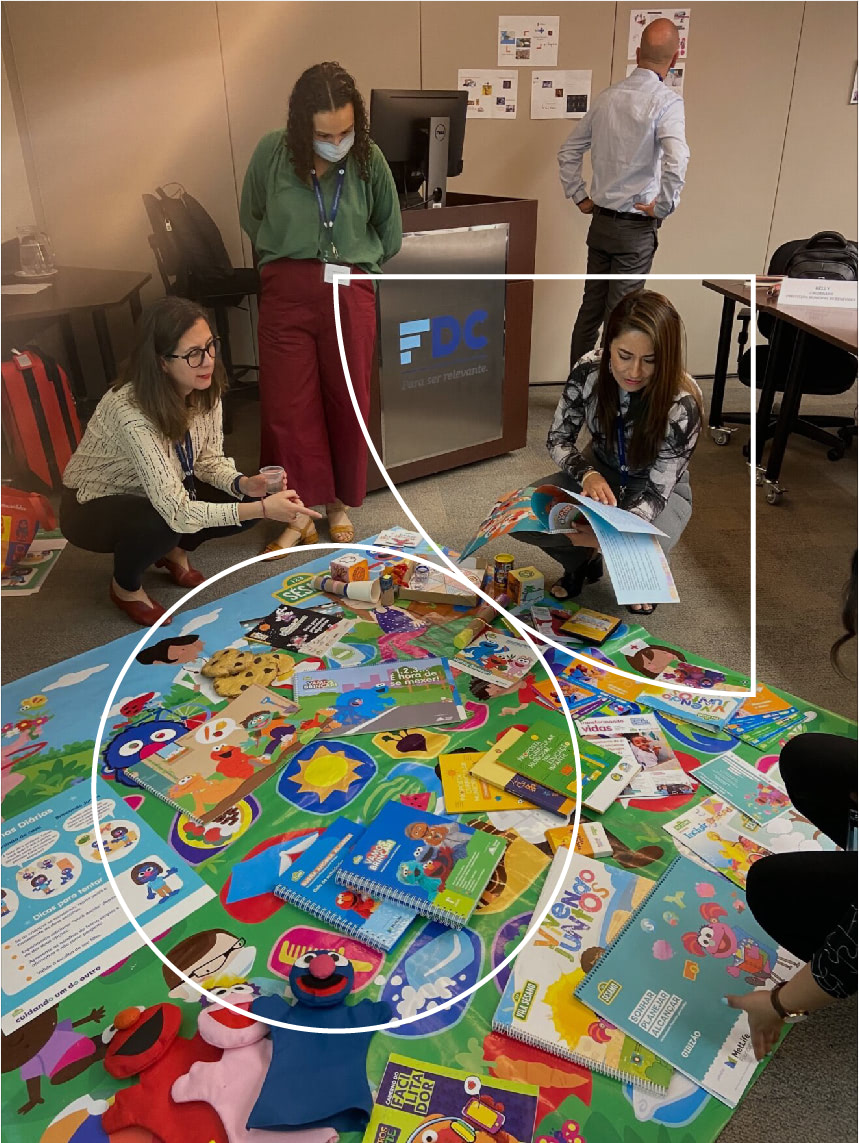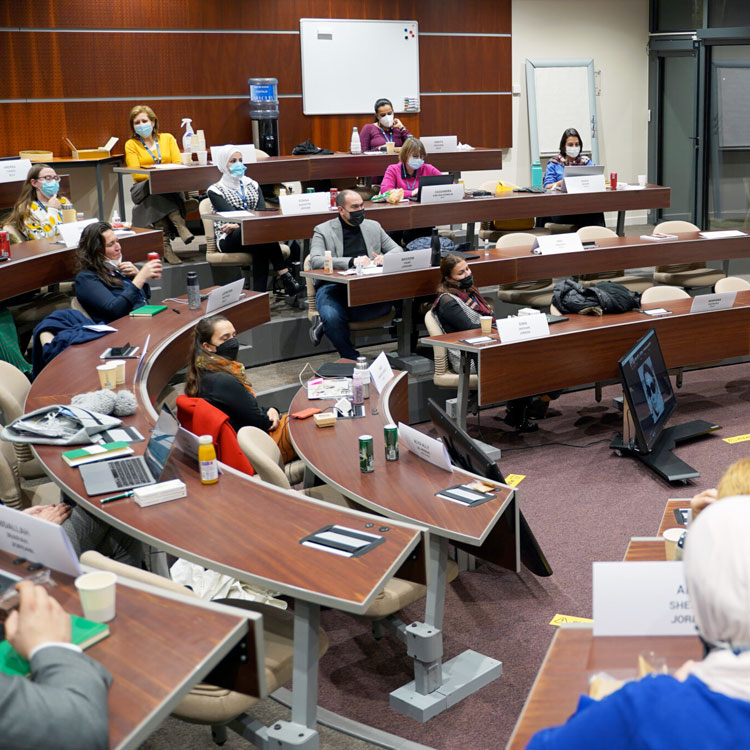How can leaders in early childhood apply ideas from behavioural science to encourage more parents and practitioners to adopt and sustain positive caregiving behaviours? Selected teams from around the world investigate that question in each edition of the ABC for ECD (early childhood development) executive education course, featuring faculty from INSEAD, BVA Nudge Unit and Save the Children’s CUBIC and supported by the Bernard van Leer Foundation and the Conrad N. Hilton Foundation.
“We’ve been supporting improved caregiving practices for many years,” explains Sam Sternin, Behavioural Science Advisor at the Bernard van Leer Foundation, “but we always sensed that many parents struggled to translate their improved ECD knowledge into actual changes in parenting practices. Using behavioural science has enabled us to support our partners to adjust their programmes to help caregivers translate good intentions into consistent practice of improved behaviours, greatly increasing their impact and sustainability.”
“For us this has all been about how to better support our partners working day-to-day with caregivers of young children in East and Southern Africa to deliver on the ambitious goals and objectives they have set around improving caregiving practices,” adds Maniza Ntekim from the Hilton Foundation. “Hilton Foundation staff were also able to participate in the course and we learnt about the rigorous evidence behind behavioural science, which really gave us confidence to encourage our partners to adopt some of these tried and tested methods.”

Picture taken at the INSEAD Brazil course in Sao Paulo, June 2022. Photo: Courtesy of Bernard van Leer Foundation.
A course that leverages diverse strengths
The executive education course started in 2022, with editions held in in Paris, São Paulo and Nairobi. Each edition involves around 6-8 teams consisting of a senior policy maker or programme manager, plus three or four technical staffers. Teams come from a mix of government ministries, NGOs, foundations and businesses.
Each team’s participation starts through virtual engagement with INSEAD faculty to define the problem they want to address and identify how behavioural science can best help them to do so. A month later, all the teams gather in-person for a week-long module, where they define a tailored action plan in collaboration with course faculty, while also learning from each other. Over the next five months, teams receive coaching, mentoring and technical guidance to implement their plan.
Loïc Sadoulet, affiliate professor of economics at INSEAD, explains: “We really tried to leverage the strength of all the units. Save the Children has amazing applications of behavioural science to early childhood. BVA Nudge Unit has strong experience in consulting and transforming concepts into operations. And here at INSEAD, we have very good conceptual tools – all the theory and scientific testing and verifying.”

Picture taken at the first cohort of the INSEAD Executive Education course in France in 2022. Photo: Courtesy of Studio – BVA Group.
Teams put their learning into practice
In the 2022 edition of Early Childhood Matters, two teams from Jordan write about the projects they developed as part of the first cohort of ABC for ECD. Queen Rania Foundation conducted a randomized control trial with an interactive chatbot, on WhatsApp and Facebook Messenger, to encourage parents to follow through on a commitment to read more frequently with their young children.
The country’s Royal Health Awareness Society, meanwhile, worked on an intervention to encourage behaviour change in paediatricians, prompting them to use routine appointments for vaccinations as an opportunity to initiate conversations with caregivers on the best ways to support their children. In the pilot phase they focused on two issues: making eye contact while interacting with children, and minimising screen time. You can read more about their experiences implementing behavioural science in Early Childhood Matters 2022 here and here.
A team from from El Salvador that joined the second cohort in São Paulo has already made significant progress with their project to encourage parents to engage in more interactive play with their children. The team completed research in over 70 municipalities and identified two interventions that preliminary results indicate lead to an increase in interactive play from 20 minutes to 2 hours each week. National scaling of the approach is now underway.

Picture taken at the INSEAD Brazil course in Sao Paulo, June 2022. Photo: Courtesy of Thais Sanches.
Next steps
The 2023 editions of the course feature an updated curriculum, increased time ‘outside the classroom’ to better apply course learnings, and a strengthened alumni network. The Bernard Van Leer Foundation is also exploring whether other foundations and donors might sponsor teams working on early childhood issues that could benefit from this course.

